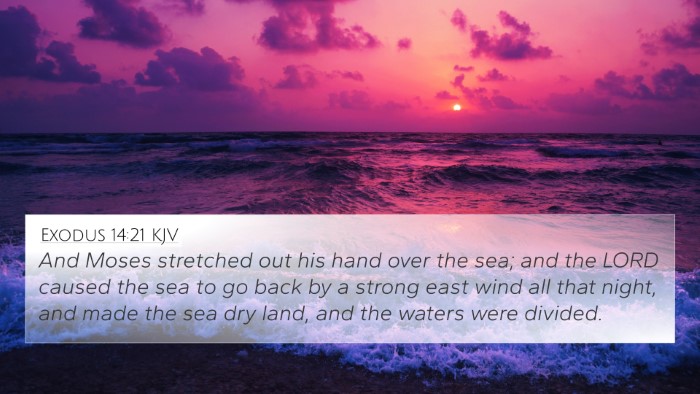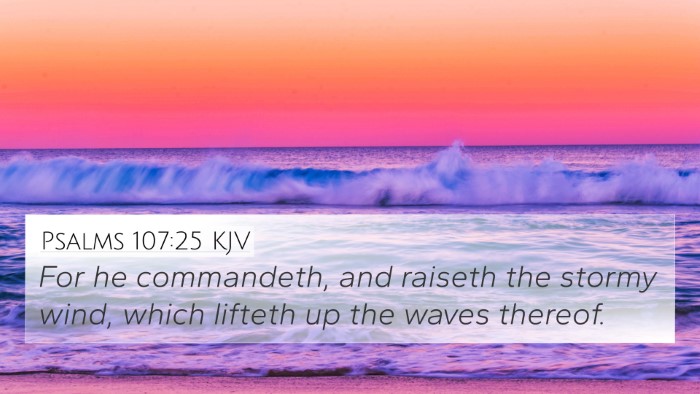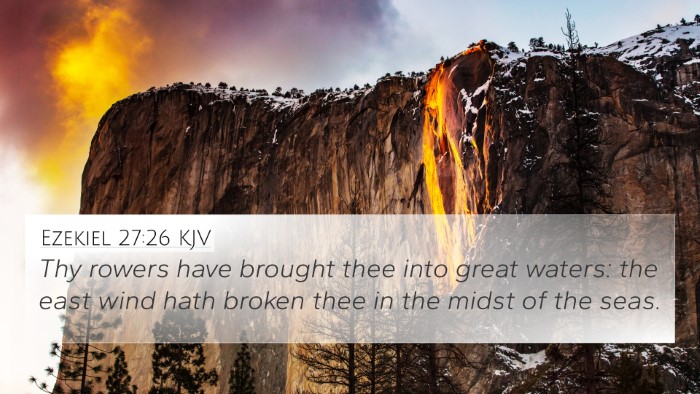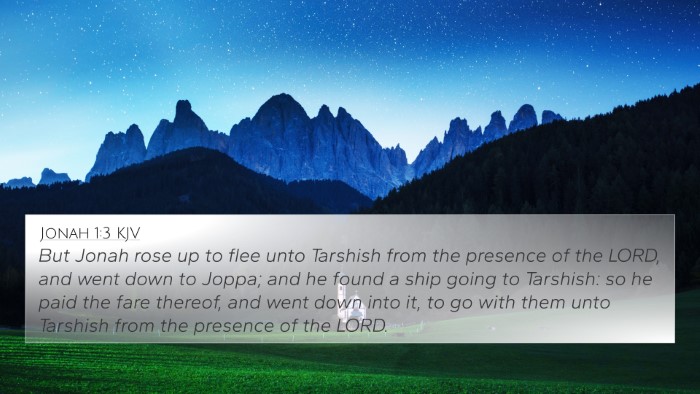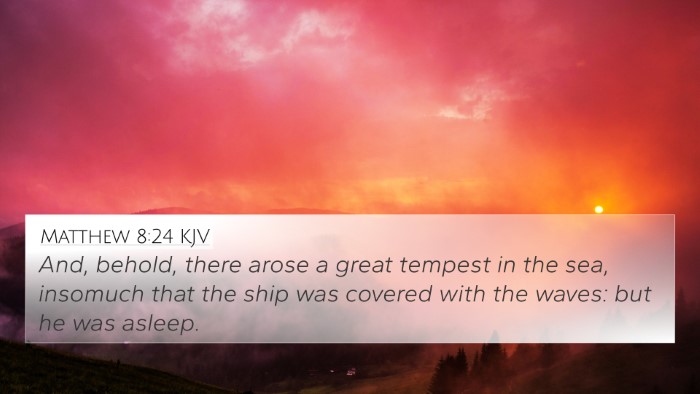Understanding Acts 27:14
Acts 27:14 states: "But not long after there arose against it a tempestuous wind, called Euroclydon." This verse captures a pivotal moment in the Apostle Paul's journey to Rome, illustrating both the physical dangers of the sea and the spiritual significance of trials faced by believers. The following commentary insights provide a comprehensive understanding of this verse.
Insights from Public Domain Commentaries
In examining Acts 27:14, we draw from the insights of Matthew Henry, Albert Barnes, and Adam Clarke to paint a fuller picture:
Matthew Henry's Commentary
Henry emphasizes how this tempestuous wind represents unexpected trials that can arise in the lives of believers. He posits that this storm was not merely a natural phenomenon but a divine trial intended to test faith. The term "Euroclydon" itself evokes thoughts of chaos and turmoil that often accompany spiritual journeys. Just as Paul was navigating treacherous waters, believers can expect challenges but must remain steadfast in their faith.
Albert Barnes' Notes
Barnes highlights the significance of the voyage taken by Paul and the implications of the storm as a metaphor for the struggles of the Christian life. He explains that the Greek word for "Euroclydon" indicates a violent and tempestuous wind, serving as a reminder that life's journey may often lead into turbulent situations. Moreover, this moment in scripture illustrates God's sovereignty over nature and circumstances, assuring believers that their trials are under divine control.
Adam Clarke's Commentary
Clarke provides a detailed analysis of the geographical and meteorological factors behind Euroclydon. He notes that such storms were common in the region, reinforcing the idea that adversities are natural occurrences in life. Clarke connects this verse to the broader narrative of Paul’s mission, suggesting that even in hardship, God's purpose prevails. This aligns with the overarching theme that despite external chaos, divine providence guides believers through their trials.
Key Themes and Connections
Acts 27:14 can also be cross-referenced with several other biblical texts, providing deeper insights into its meaning and implications. The following is a list of related verses:
- Matthew 8:24-27: A storm that threatened the lives of Jesus' disciples illustrates the power of Christ over nature.
- Psalm 107:23-30: This passage reflects the experience of sailors in distress and the Lord's deliverance, mirroring Paul's journey.
- Romans 8:28: This verse assures believers that God works all things together for good, paralleling the trials faced by Paul.
- James 1:2-4: Encouragement to count trials as joy, as they produce perseverance, akin to Paul’s steadfastness amid storm.
- Philippians 1:12-14: Paul speaks about how his chains have served to advance the Gospel, reflecting on the purpose behind hardships.
- 2 Corinthians 1:8-10: Paul’s reflections on suffering and comfort correlate with his experiences during the storm.
- Isaiah 43:2: A reassurance that God is with His people in life's most tumultuous moments, akin to the journey of Paul through the storm.
Conclusion
Acts 27:14 serves as a powerful reminder of the trials believers may face throughout their journeys. Through the insights of noted commentators, we see that storms often symbolize not only physical dangers but also spiritual tests of faith. Believers are assured that even within life’s Euroclydon, God’s guiding hand remains, providing comfort, purpose, and hope.
Using Bible Cross-References for Deeper Study
Engaging with tools for Bible cross-referencing can enhance understanding and provide rich thematic connections across scripture. A Bible concordance or cross-reference Bible study guide can help identify such connections effectively. Here are some suggested methods:
- How to find cross-references in the Bible: Utilize a concordance or digital resources to anchor themes and verses.
- Identifying connections between Old and New Testament: Focus on patterns and prophecies fulfilled throughout biblical history.
- Dive deep into thematic studies: Explore how a theme like faith in storms can appear in various contexts across both testaments.
As you explore Acts 27:14 and its connections, remember the importance of cross-referencing biblical texts to enrich your understanding of scripture and its interconnected messages. This practice not only deepens your study but also illuminates the cohesive narrative of God's interaction with humanity.




